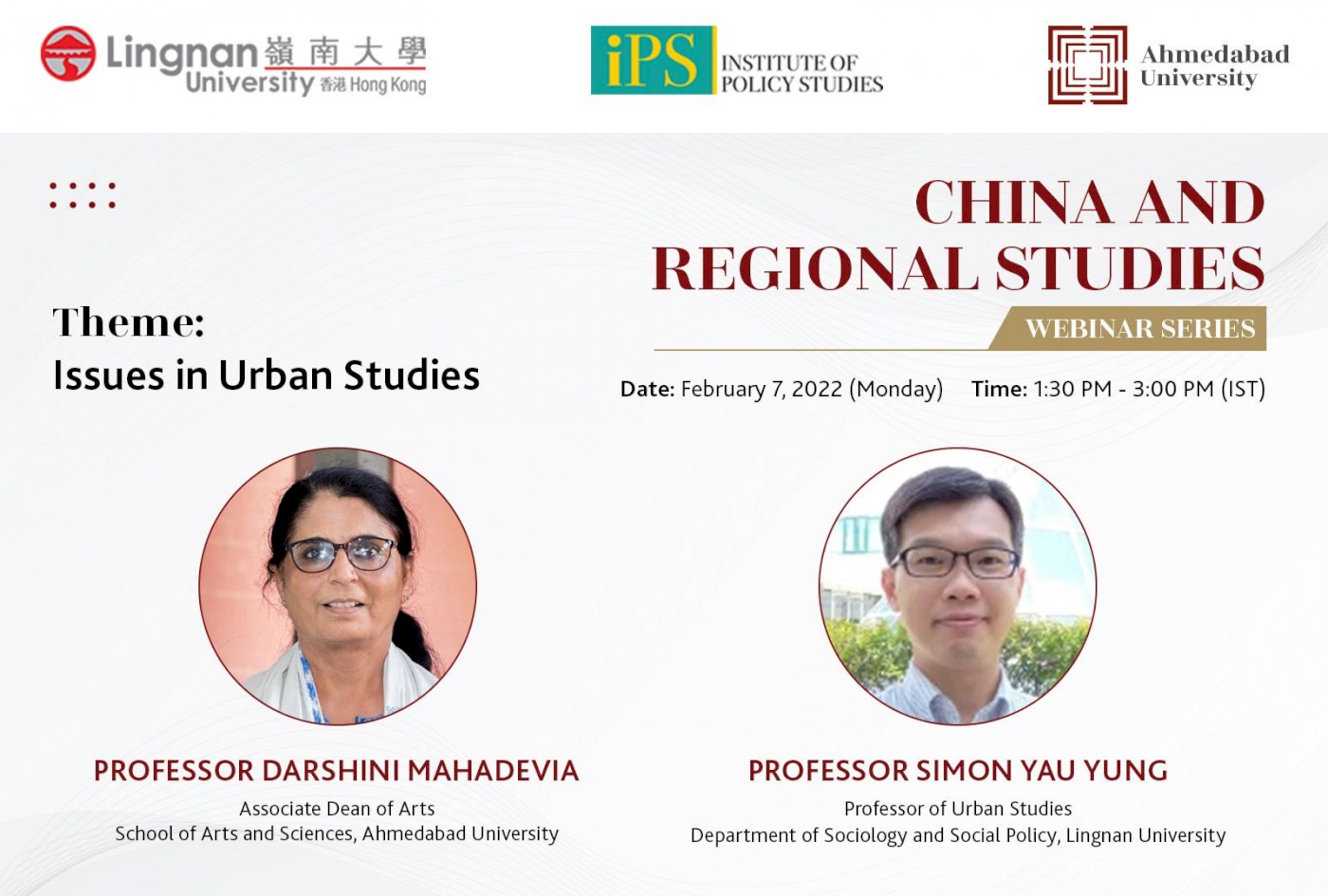China and Regional Studies Webinar Series: Issues in Urban Studies

Lingnan University and Ahmedabad University are jointly organising a China and Regional Studies Webinar Series in 2022. The series taps into the topical nature of China and India relations and the experiences of the two countries in key areas that can be fruitfully compared. The webinar series is designed to disseminate and explore the intellectual potential of research fields for future collaboration. The topics include youth aspirations, urban development, cultural practice, and the political economy of gender. The second webinar will be held on 7 February 2022 (Monday). Below are the details of the webinar for your information:
Theme: Issues in Urban Studies
Date: 7 February 2022 (Monday)
Time: 4:00 pm - 5:30 pm (Hong Kong time, GMT+8)
Topic: Urban Issues in India
With about 38% of national population of 1.4 billion, that is about 530 million people, living in urban areas, urban India is extremely diverse in character. There are about 8,000 urban areas enumerated in the 2011 census; the 2021 census has yet to be conducted. Of the total areas declared as urban in 2011 census, only half had urban government. The rest have rural governments called Panchayats. This is the first issue. Urbanisation levels are largely related to level of economic growth. This is the second issue that state governments have not been able to induce urbanisation in the least developed states in spite of a balanced regional development policy pursued for a long time. While there are multiple challenges of urbanisation, I would present on challenges related to housing and shelter security, transport and climate change.
Speaker: Professor Darshini Mahadevia, Associate Dean of Arts, Ahmedabad University, India
Topic: Subdivided Flats as Vertical Slums in Hong Kong
Informal settlement is not an urban challenge unique to the developing countries. In many newly industrialised or even post-industrial cities, informal settlements also exist but in different forms. Hong Kong is of no exception. Even though a massive-scale public rental housing programme has been administered in the city since the post-war era, informal housing has never been eliminated. It emerged as squatter huts in early days. When residential developments were getting taller and taller in the territory, informal housing started proliferating in form of vertical slums such as caged homes, cubicle units and rooftop houses. Subdivided flats represent the most contemporary version of such informal accommodations in today’s Hong Kong. In this seminar, the subdivided flat problem in the city will be overviewed. Causes and drivers of the problem will then be examined. What comes last is the discussion of the possible ways-out to the vertical slum problem in Hong Kong.
Speaker: Professor Simon Yau Yung, Professor of Urban Studies, Department of Sociology and Social Policy, Lingnan University, Hong Kong



